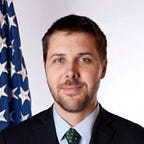What Today Means for our Global Efforts to Combat Climate Change
Today, on Earth Day, nearly 170 countries will sign the Paris Agreement, reinforcing their commitment to the historic climate pact that was forged in December of last year. That’s the largest number of countries that have ever signed an international agreement in one day.
While the signing at the United Nations is historic, dozens of countries today will also convene to discuss how they can accelerate momentum even more — by pushing for the Agreement to begin years earlier than anyone expected.
The key to what climate policy wonks call “entry into force” is for countries to formally join the Agreement. Unlike signing, joining is when a country completes its formal domestic procedures — a signal that that country is ready for the Paris Agreement to begin and to start making good on its commitments immediately.
Joining is when a country completes its formal domestic procedures and is ready to start making good on its commitments immediately.
Before the gavel came down in Paris, most experts assumed that the Paris Agreement wouldn’t start until 2020. But the Agreement itself included a clause that said it would enter into force once 55 countries representing 55 percent of global emissions formally join the agreement. Last month, the U.S. and China, which together represent nearly 40 percent of emissions, committed to formally joining the Agreement as soon as possible this year — in 2016.
Today, Canada, Fiji, Granada, Mali, the Marshall Islands, Maldives, Norway and Palau are convening dozens of additional countries beyond the U.S. and China — large and small, major emitters and small island states, developed and developing countries — to discuss how they too can complete their domestic procedures to join the Agreement in 2016, putting us within striking distance of the Agreement entering into force years before anyone thought possible.
This shared commitment to early entry into force will increase momentum for global climate action and encourage countries to enact more ambitious, durable domestic climate policies going forward.
It will facilitate more rapid resolution of key negotiating issues and encourage swifter implementation of domestic policies to cut pollution.
It will catalyze more private sector clean energy investment. Last year, more than 150 iconic American businesses pledged support to the Paris Agreement and made commitments of their own to drive down emissions and drive up investment in low-carbon solutions. As we call on more companies to join their ranks this year, early entry into force will reinforce to the private sector that the move toward clean technologies is irreversible and accelerating.
In short, it will show that, while there’s more work to do, Paris marked a turning point in the world’s effort to save the only planet that we’ve got.
And that is worth fighting for.
Related:
